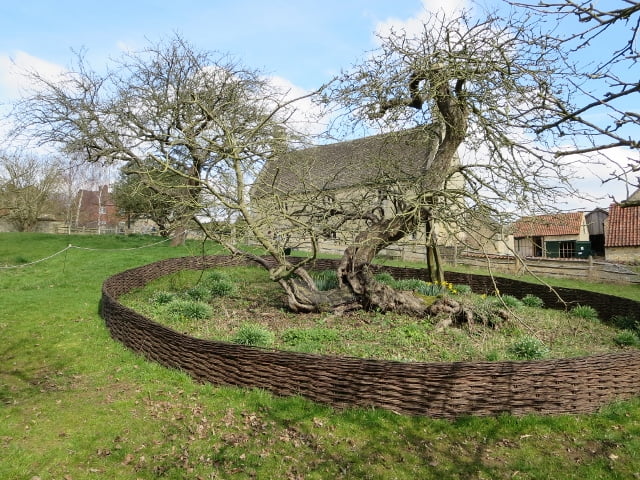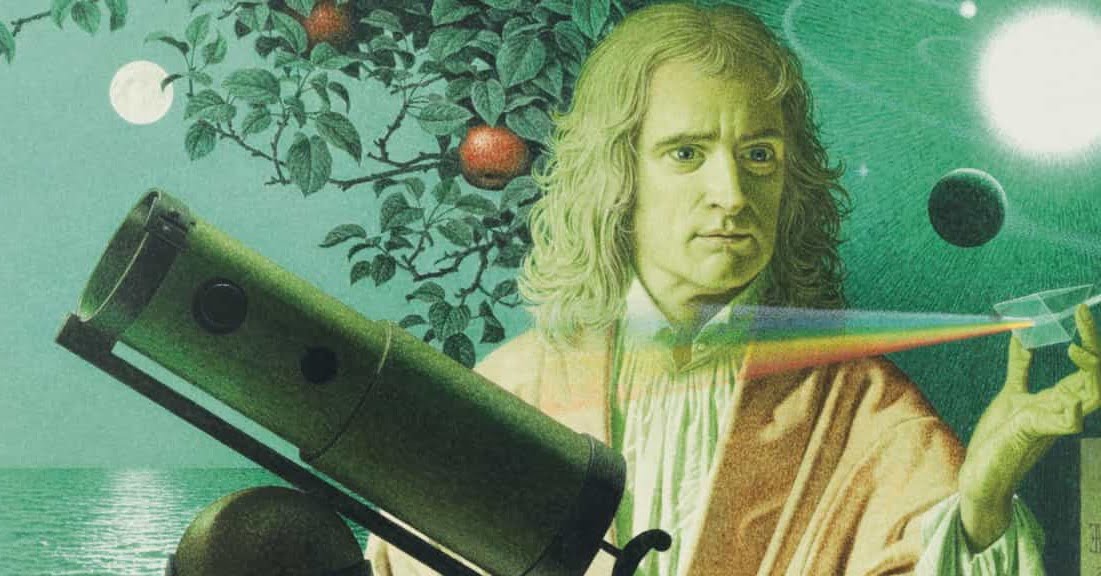The story of how the idea of gravity literally came to Newton's mind is known even to those who do not know the details of his research. We checked what role the apple actually played in this.
Researchers Bernard Cohen of Harvard University and George Smith of the Massachusetts Institute of Technology thinkthat the story of how Newton came to the theory of gravity thanks to a falling apple is what is most widely known about the great scientist. A sure sign of how popular a story is is the numerous references in popular culture. An apple falling on Newton's head was shown in screensaver educational program Newton's Apple, which was broadcast on American television from 1983 to 1998. Newton sitting under an apple tree was also depicted on first logo Apple company.
In 1666, the plague was raging in England. Classes at Cambridge were suspended, and Newton decided to return to his home in Lincolnshire. Despite the move, the scientist continued to work on the problems that occupied him at the university. From Newton's notes we know that at that time one of these mysteries was the force of gravity, although he wrote his famous law formulated almost 20 years later.
The story of the apple is told by John Conduitt, a relative of Newton who worked with him at the Royal Mint. In his memoirs about the scientist, compiled around 1727, Conduitt writes: “While walking through a garden [in Lincolnshire in 1666], the idea occurred to him that the force of gravity (which brought the apple down from the tree to the ground) was not limited to a certain distance from the Earth and must extend much further. "Why not to the moon?" - he thought, and if so, this should affect its movement and, probably, keep it in orbit. After this, Newton lay down and began to carry out calculations.”

Antiquarian and archaeologist William Stukeley remembers meeting Newton in April 1726 in Kensington: “We went into the garden and drank tea in the shade of the apple trees, just him and me. In the middle of the conversation, he said that he was in exactly the same situation when the concept of gravity occurred to him." Newton went on to talk about his thoughts about why an apple falls perpendicular to the earth, and not to the side or up, and his conclusion: “The reason is that the Earth attracts it ... and if matter attracts matter, it must be in proportion to its quantity. So the apple also attracts the Earth, just as the Earth attracts the apple.”
In 1727, the story of the apple was told by the French thinker Voltaire, who then lived in England. In his essay he writes: “Sir Isaac Newton, walking through his garden, first thought of his system of gravity when he saw an apple fall from a tree.” It is believed that Voltaire wrote this story told Katherine Barton, Newton's niece.
As can be seen from the testimony of contemporaries, people began to talk about the “inspiring” apple several decades after Newton began working on his theory. Apparently, this anecdote was invented by the scientist himself, slightly changing the details from conversation to conversation and honing the harmony and logic of the story. However, in none of the versions recorded during Newton's lifetime does an apple fall on his head.
History began to mysteriously transform after Newton's death in 1727. A little over 30 years later, mathematician Leonhard Euler corresponded with the German princess Frederica-Charlotte, explaining in each of his letters various physical concepts and phenomena. IN message, on gravity, Euler tells how Newton “one day was lying under an apple tree, and an apple fell on his head, which prompted him to think.” Already at the end of the 18th century, Isaac Disraeli, writer and father of the future British Prime Minister Benjamin Disraeli, wrote in one of his essays: “As Newton was reading under an apple tree, a fruit fell and hit him hard on the head. Noticing the small size of the apple, he was surprised by the force of the blow. This led him to think about the acceleration of falling bodies."
Mostly lies
- http://www.newtonproject.ox.ac.uk/
- https://www.cambridge.org/ru/academic/subjects/philosophy/early-modern-philosophy/cambridge-companion-newton-2nd-edition
- http://ttp.royalsociety.org/ttp/ttp.html?id=1807da00-909a-4abf-b9c1-0279a08e4bf2
If you find a spelling or grammatical error, please let us know by highlighting the error text and clicking Ctrl+Enter.







